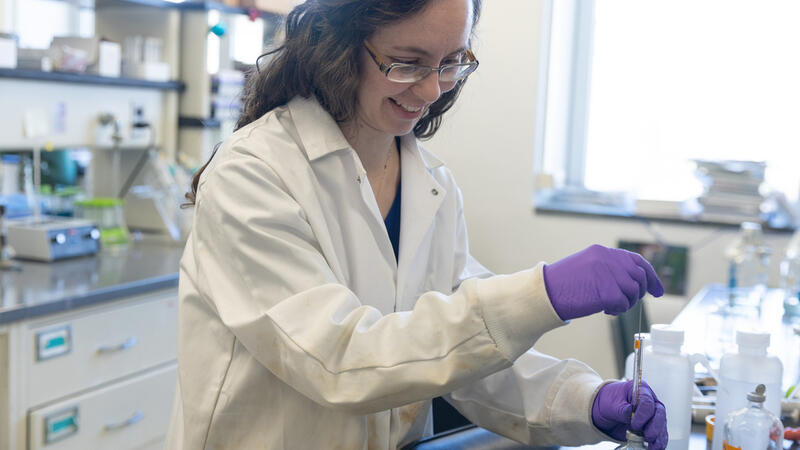News
Sustainable Bioenergy Cropping Systems
New model helps ID source of potent greenhouse gas
Elise Rivett was researching nitrous oxide (N20) when she discovered a problem with the model long used to trace the source of this potent greenhouse gas.
Caleb Geissler is a fifth year PhD student in Chemical and Biological Engineering at Princeton University. With projects ranging from supply chain optimization to studying biofuels and carbon capture and storage on a national scale, his work generally centers on the application of mathematical optimization to renewable energy systems and sustainability.
Scientists with UW–Madison’s bioenergy research hub have modified poplar trees with a rice gene, making them easier to break down into more sustainable replacements for fossil fuels and petrochemicals.
Dubbed a self-driving laboratory, the system uses a computer algorithm to identify the relationship between protein sequence and function and suggest changes likely to improve certain functions. The computer then sends the protein sequences to a robotic lab that tests them and provides feedback from experimental data to help the agent improve its “understanding” of the system and guide future rounds of experiments.
Researchers in Björn Hamberger's lab at Michigan State University engineered a strain of poplar that produces squalene, turning the fast-growing trees into "biological factories" for high-value products.
From early childhood, Harrison Moon was fascinated by the natural world, and this fascination eventually steered him towards a career in plant pathology. Currently, he is a postdoctoral researcher in the Hittinger Lab at the University of Wisconsin–Madison.
Using machine learning, UW–Madison scientists have identified more than 30 million acres of U.S. farmland abandoned between 1986 and 2018, creating a field-level map of lands that could be used to mitigate climate change.
A team led by researchers at the Center for Advanced Bioenergy and Bioproducts Innovation, in collaboration with the Great Lakes Bioenergy Research Center, has created a valuable new resource that offers a deeper understanding of this valuable bioenergy crop and the possibility of designing a more resilient sorghum plant in the future.
From soil to sequestration, researchers at Princeton University and the Great Lakes Bioenergy Research Center have modeled what a supply chain for second-generation biofuels might look like in the midwestern United States.
The International Union of Forest Research Organizations (IUFRO) has awarded its highest honor to Great Lakes Bioenergy Research Center co-investigator Jiquan Chen.
Great Lakes Bioenergy Research Center researchers Linda Horianopoulos and Rose Lizzo are the winners of the 2024 Service and Outreach Awards in recognition of their dedication to sharing the wonder and excitement of the center’s work and mission.




